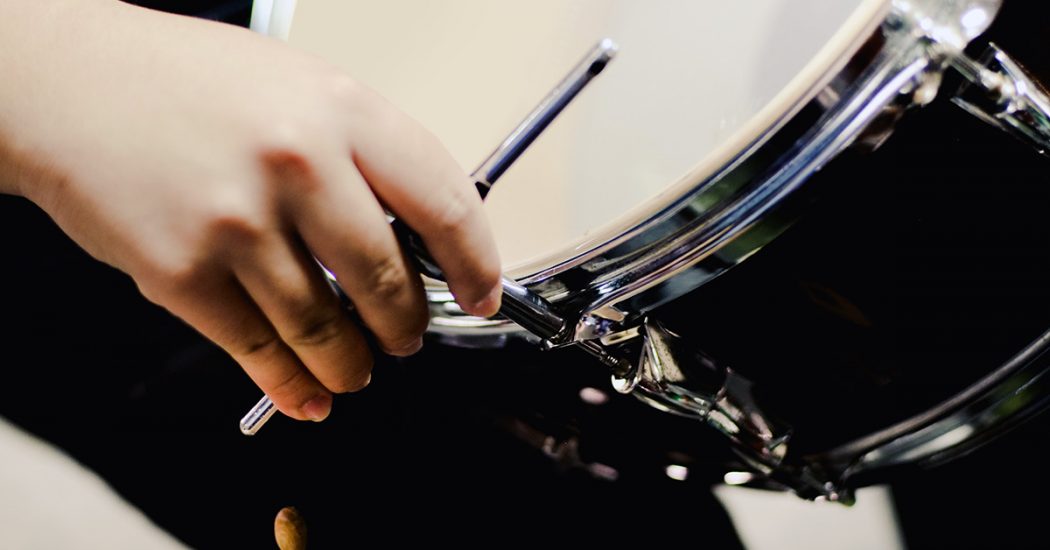Drums should be tuned every time they are played or at least once a month to maintain their optimal sound quality and performance. Regular tuning ensures that the drum head tension remains balanced and the drum produces the desired pitch and tone.
Tuning drums is an essential part of drum maintenance that directly impacts the sound quality and performance of the instrument. Whether you’re a professional drummer or a beginner, understanding how often drums need to be tuned is crucial. Proper tuning not only improves the sound quality but also prolongs the life of the drum heads and enhances the overall playing experience.
By following a regular tuning schedule, you can ensure that your drum kit always delivers the best performance. We will explore the importance of drum tuning and provide guidelines for how often drums need to be tuned to maintain their optimal sound quality.
Importance Of Drum Tuning
Drum tuning is a crucial aspect of maintaining the quality and performance of your drum set. When it comes to the importance of drum tuning, it goes beyond simply keeping your drums in good shape. A well-tuned drum not only enhances the sound quality but also improves responsiveness, providing a better playing experience overall. Let’s delve into the significance of drum tuning in more detail.
Enhances Sound Quality
Tuning your drums regularly contributes to achieving a consistent and pleasing sound. Properly tuned drums produce a rich, balanced tone, ensuring that your performances are of the highest quality. Whether you play in a band or simply for your pleasure, a well-tuned drum set significantly enhances the overall audio experience.
Improves Responsiveness
A well-tuned drum kit offers improved responsiveness, allowing for more dynamic and expressive playing. When each drumhead is precisely tuned, you’ll notice enhanced rebound and sensitivity, making it easier to control and manipulate the sound as you play. This results in a more enjoyable and effortless drumming experience, regardless of your skill level.
Factors Affecting Drum Tuning Frequency
Factors affecting drum tuning frequency can vary depending on various elements such as drumhead material, temperature, humidity, and playing style. These factors can determine how often drums need to be tuned for optimal sound and performance.
Factors Affecting Drum Tuning Frequency Drum tuning frequency is influenced by several key factors that every drummer should consider to maintain optimal sound quality and performance. Being mindful of these factors will ensure that your drums consistently sound their best:Environmental Conditions
The ambient temperature and humidity levels of your practice or performance space can significantly impact the tuning stability of your drums. Fluctuations in temperature and humidity can cause drumheads to expand or contract, leading to changes in tension and pitch. To mitigate these effects, consider investing in a dehumidifier or humidifier depending on your specific environmental conditions.Frequency Of Use
The more frequently you play your drums, the more often they will require tuning. Regular use can gradually loosen the tension of the drumheads, leading to a loss of optimal sound quality. Drummers who play every day or perform regularly should schedule tuning sessions more frequently to maintain consistent tonal quality.Drumhead Quality
The quality and condition of your drumheads also play a crucial role in determining the tuning frequency. High-quality drumheads tend to hold their tuning better and require less frequent adjustments compared to lower-quality alternatives. Additionally, the age and wear of the drumheads can impact the stability of the tuning. Regularly inspecting and replacing worn-out drumheads can help maintain optimal tuning stability. By understanding and addressing these influential factors, drummers can effectively manage the tuning frequency of their drums, ensuring that they consistently produce the desired tones and maintain their overall performance.Signs That Drums Need Tuning
Drums should be tuned regularly to maintain their sound quality. Signs that drums need tuning include inconsistent pitch, loose tension rods, and a dull, lifeless sound. Typically, drums should be tuned before every performance or recording session to ensure optimal performance.
Inconsistent Pitch
One of the signs that drums need tuning is an inconsistent pitch. When the drums are not properly tuned, you may notice that some of the drumheads produce higher or lower pitches compared to others. This can result in a dissonant and unpleasant sound, making it difficult to achieve a cohesive rhythm.Lack Of Sustain
Another indication that your drums need tuning is a lack of sustain. If you hit the drum and the sound fades quickly, it may be a result of the drumheads being too loose or too tight. Properly tuned drums should have a sustained sound that resonates well, allowing the notes to ring out for a longer period.Muffled Sound
A muffled sound is yet another sign that your drums are in need of tuning. When the drumheads are not properly tensioned, the sound produced can be dull and muted. This can happen when the drumheads are too loose, causing a lack of clarity and definition in the sound. To ensure that your drums are always in optimal condition, it is important to pay attention to these signs and address any issues with tuning promptly. By regularly tuning your drums, you can maintain a consistent pitch, achieve a better sustain, and enjoy a clear and vibrant sound.
Credit: www.sweetwater.com
How Often To Tune Drums
Properly tuned drums are crucial for achieving optimal sound quality and performance. Understanding how often to tune drums can help maintain the integrity of your instrument and enhance your playing experience. Let’s explore the different aspects of drum tuning to keep your beats sounding their best.
Initial Tuning
When setting up a new drum kit, initial tuning is essential to ensure each drum produces the desired pitch and resonance. It is recommended to tune drums before the first use to establish a solid foundation for future adjustments.
Regular Maintenance
For consistent sound quality, regular maintenance through tuning is key. Drum heads can stretch and lose tension over time, affecting sound output. Aim to tune your drums every few weeks or whenever you notice a change in tone or feel.
Monitoring Changes
Stay attentive to changes in your drum sound or performance. Factors like temperature, humidity, and frequency of use can impact tuning. By monitoring these changes and adjusting accordingly, you can keep your drums sounding crisp and in top condition.
Drum Tuning Techniques
Drum Tuning Techniques:
Using A Drum Tuning Key
Insert the tuning key into the drum’s tension rods. Loosen or tighten the rods to adjust pitch.
Balancing Lug Tensions
Check each lug’s tension with a tension meter. Adjust to ensure even tension around the drum.
Fine-tuning With Ears
Tap the drumhead with a drumstick. Listen for consistent pitch across all lugs. Make adjustments as needed.

Credit: news.blizzard.com

Credit: www.facebook.com
Frequently Asked Questions For How Often Do Drums Need To Be Tuned
How Do You Know If Your Drum Is Out Of Tune?
You can tell if your drum is out of tune by listening for any off-pitch or unclear sounds. Additionally, you can use a drum tuner to make accurate adjustments. Regular maintenance and tuning contribute to improved sound quality and overall performance.
Can Drums Go Out Of Tune?
Yes, drums can go out of tune due to various factors such as temperature and humidity changes. Regular tuning and maintenance are necessary to keep drums sounding their best.
Does A Drum Set Need To Be Tuned?
Yes, a drum set needs to be tuned regularly to ensure optimal sound quality and performance.
How Often Do Drummers Change Heads?
Drummers typically change drum heads every 6-12 months depending on frequency of use and playing style.
Conclusion
Regular drum tuning is crucial for maintaining the best sound quality and performance. By tuning your drums frequently, you can ensure that they produce the desired pitch, resonance, and tone. This not only enhances the overall sound of your drum kit but also improves the playing experience.
Whether you’re a professional drummer or a beginner, taking the time to tune your drums regularly will help unleash their true potential. So, make sure to include drum tuning as a regular part of your drumming routine to achieve the best results.